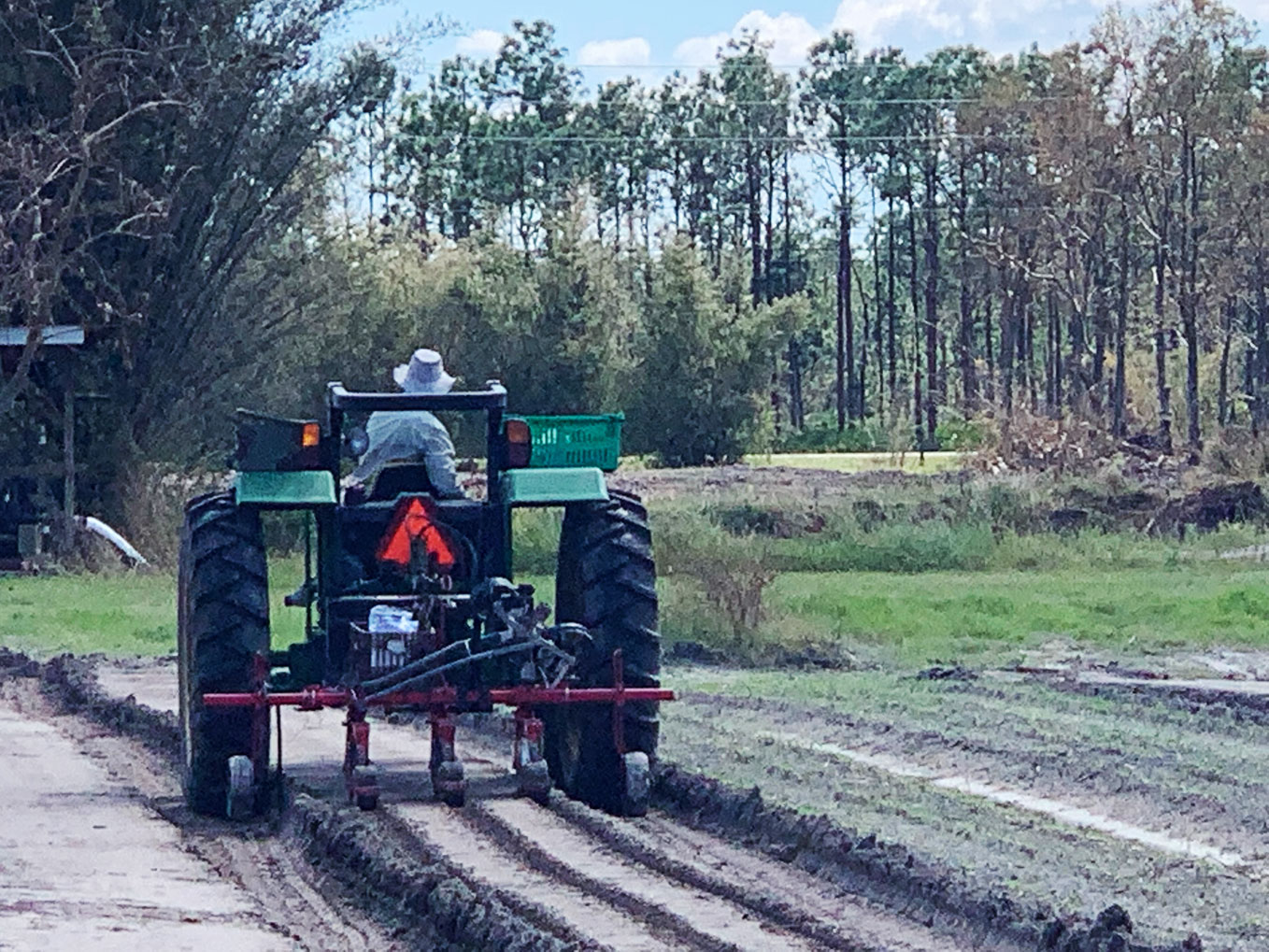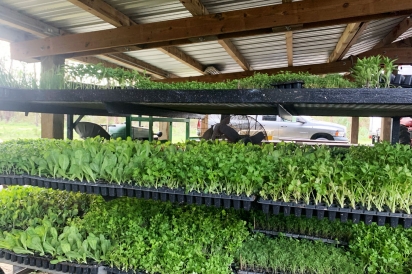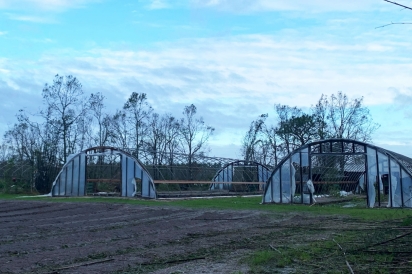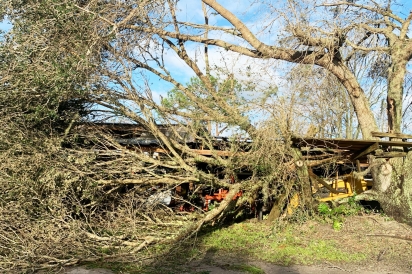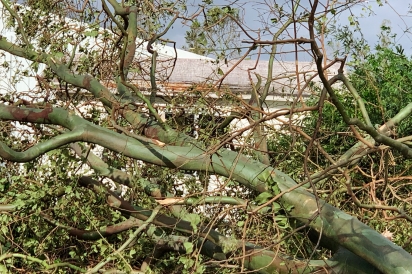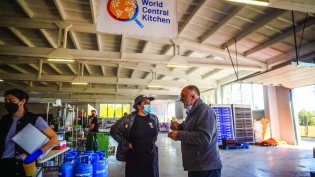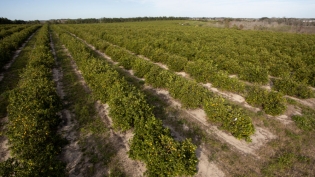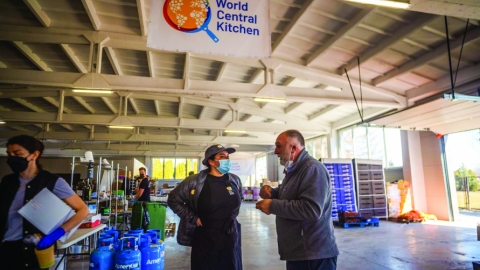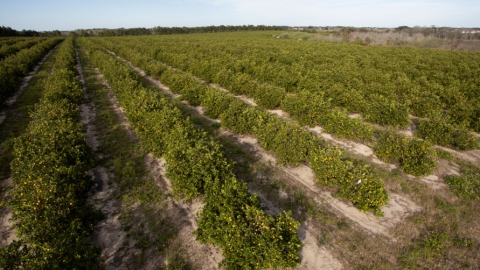The Day After Hurricane Ian, Worden Farm Was Back to Planting
While shell-shocked residents of Sanibel Island, Fort Myers Beach and nearby coastal communities waded through waist-deep water to survey the wreckage wrought by Hurricane’s Ian less than 24 hours earlier, farmers Chris and Eva Worden of Worden Farm in Punta Gorda were already planting their fall vegetable starts.
There would be no electricity for another week. The storm had blown down 200 trees and they lost 20 acres of fall vegetables in the 85-acre family farm, says Eva. But they saved the transplants, and some crops survived, and they planned to make it to their Sunday farmers markets on Florida’s west coast, even with a limited harvest. Their farm also supplies organic produce to local farmers markets, including Urban Oasis Project markets.
“We took a direct hit from both eyewalls, hovering over the farm moving 8 miles an hour,” says Eva. “It was intense being in this storm. As farmers, you’re always in touch with the forces of nature.” Eva was in South Florida when Hurricane Andrew took out limes and avocado trees on her family’s property in 1992, and later when powerful Hurricane Charley took a similar path to Ian in 2004, a year after she and her husband, Chris, had started their certified-organic farm.
“Our first barn was completed two weeks before Charley, which peeled the roof right off,” she recalls. Since then, they’ve built for hurricanes. “At least our house and barns stood,” she says. “We have to replace the covers on our three greenhouses, and some outbuildings were damaged.” Their organic fertilizer was ruined.
Located in an area of cattle ranches, orange groves and pinelands, Worden farm neighbors the 79,000-acre Babcock/Webb wildlife management area, and is one mile from Shell Creek, a tributary of the Peace River. Because of their location 10 miles inland, their fields didn’t face any storm surge.They set up a link for donations targeting replanting and recovery, since small specialty farms like theirs face cleanup costs, labor, fuel, equipment but may not be eligible for assistance. “It’s a lot just to clean up,” she says.
There’s another way people can help Worden Farm and farms like theirs – by buying local produce, signing up for CSAs, shopping at farmers markets and dining restaurants that use local products. “The local approach is more climate-smart,” Eva Worden says. “Get your head of lettuce from a farm that’s a few days away in Florida rather than California when you have a choice. You can create the demand to keep farmers in business by understanding the benefits and supporting this type of agriculture.”
Meanwhile, they are focusing on getting back to normal, and getting their produce ready for a season of farmers markets, no matter what the elements bring. “We are part of the food scene,” she says.
How You Can Help Worden Farm
• Donate here to help with their recovery.
• Find their goods at farmers markets in Southwest Florida
• Shop for local produce at Urban Oasis Project's farmers markets and support local farmers wherever you shop


